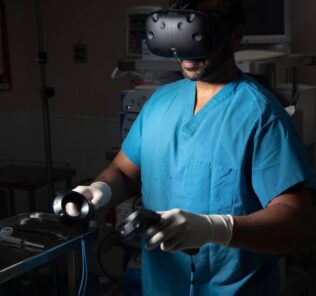SSH Journal Shares Top 100 Most Cited Healthcare Simulation Articles
In the June 2018 edition of the SSH’s “Simulation in Healthcare: The Journal of the Society for Simulation in Healthcare” Volume 13 – Issue 3 – p 211–220, Chloe Walsh MSc and team report the 100 Most cited Medical Simulation Articles of all time. SSH Members can login to see the top 100 list, with the Top 10 being directly linked independently of the article’s source here below. In the article, the authors describe the methodology they utilized to determine the search results, including the strengths and weaknesses of their results. Regardless how accurate the Top 100 list is, certainly the articles shared there are among the leading research publications for our field. Have you utilized one of more of these citation in your clinical simulation research publication?
Top 10 Most Cited Simulation in Healthcare Articles
- Virtual Reality Training Improves Operating Room Performance. – Seymour et al
- Features and uses of high-fidelity medical simulations that lead to effective learning: a BEME systematic review. – Issenberg et al
- Defining and Assessing Professional Competence – Epstein and Hundert
- Objective structured assessment of technical skill (OSATS) for surgical residents -Martin et al
- Deliberate practice and the acquisition and maintenance of expert performance in medicine and related domains -Ericsson
- Teaching Surgical Skills — Changes in the Wind – Reznick and McRae
- Randomized clinical trial of virtual reality simulation for laparoscopic skills training -Grantcharov et al
- Comparison of Vignettes, Standardized Patients, and Chart Abstraction – Peabody et al
- Assessment in Medical Education – Epstein
- Testing technical skill via an innovative “bench station” examination – Reznick et al
About The 100 Most Cited Articles on Healthcare Simulation: A Bibliometric Review Journal Article
Sponsored Content:
This article provides an overview and synthesis of the 100 most cited healthcare simulation publications to provide insight into the articles that have shaped current knowledge and practice. Searches of the Scopus and Web of Science databases were conducted in July 2017. Most articles were concerned with medical education and training (86%) and were most often published in surgical journals (33%). Manikins (20%), standardized patients (16%), inanimate part-task trainers (16%), fully simulated environments (17%), and virtual reality part-task trainers (14%) were the most commonly featured types of simulators. Healthcare simulation research has matured and grown during the preceding decades. There has been a move away from research questions focused on “does simulation work?” to an assessment of the conditions under which simulation is most effective. It is hoped that providing an overview of highly cited works will help identify topics for further research.
Below is a list of the latest articles from the August 2018 Volume 13 Issue #4 of Simulation in Healthcare:
- Simulation and Integration Into Patient Safety Systems, Phrampus, Paul E.
- Imitating Incidents: How Simulation Can Improve Safety Investigation and Learning From Adverse Events, Macrae, Carl
- A Standardized Handoff Simulation Promotes Recovery From Auditory Distractions in Resident Physicians, Matern, Lukas H.
- Cultural Prototypes and Differences in Simulation Debriefing, Ulmer, Francis F.
- Status Quo in Pediatric and Neonatal Simulation in Four Central European Regions: The DACHS Survey, Wagner, Michael
- Use of Emergency Manuals During Actual Critical Events in China: A Multi-Institutional Study, Huang.
- Electronic Health Records in Simulation Education: Literature Review and Synthesis, Wilbanks, Bryan A.
- Simulation of Shoulder Dystocia for Skill Acquisition and Competency Assessment: A Systematic Review and Gap Analysis, Gurewitsch Allen, Edith D.
- Three-Dimensional Printed Pediatric Airway Model Improves Novice Learners’ Flexible Bronchoscopy Skills With Minimal Direct Teaching From Faculty, DeBoer, Emily M.
- A Method for Functional Task Alignment Analysis of an Arthrocentesis Simulator, Adams, Reid A.
- Hong Kong Society for Simulation in Healthcare: Abstracts From the 2017 Annual Conference, Various
Visit SSH’s Simulation in Healthcare Journal Website on LWW for these Articles!
Lance Baily, BA, EMT-B, is the Founder / CEO of HealthySimulation.com, which he started in 2010 while serving as the Director of the Nevada System of Higher Education’s Clinical Simulation Center of Las Vegas. Lance also founded SimGHOSTS.org, the world’s only non-profit organization dedicated to supporting professionals operating healthcare simulation technologies. His co-edited Book: “Comprehensive Healthcare Simulation: Operations, Technology, and Innovative Practice” is cited as a key source for professional certification in the industry. Lance’s background also includes serving as a Simulation Technology Specialist for the LA Community College District, EMS fire fighting, Hollywood movie production, rescue diving, and global travel. He and his wife live with their two brilliant daughters and one crazy dachshund in Las Vegas, Nevada.
Sponsored Content:
Sponsored Content:


















